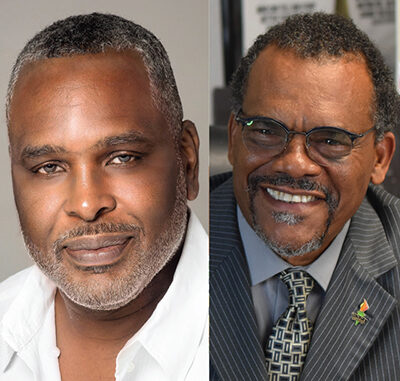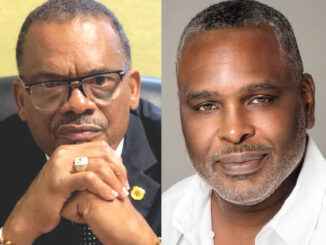
Collectively Speaking
By Perry Busby and Bobby R. Henry, Sr.
We see on a daily basis how fragile our lives are, when, even though they appear to be rock solid, they can crumble like pebbles under the weight of a 50 lb. sledgehammer in the hands of the world’s strongest man.
I take nothing for granted when someone has appeared “different” in their thought process. I’ve experienced life at a very dark point, and I couldn’t see past my own thoughts, let alone make sense of them.
Three of the women who have had the greatest influence on me: my mother, grandmother, and mother-in-law, all faced mental health challenges later in their lives. It’s a fact I can acknowledge today, but looking back, I can’t say that has always been the case. It wasn’t a matter of not wanting to accept it; the diagnosis, which felt more like a sentencing, was clear in each case: my mother and grandmother were confined to a hallucinogenic-laced world called dementia, while my mother-in-law spent her remaining days lost in a sea of fragmented memories, brought on by Alzheimer’s disease.
“A mind is a terrible thing to waste” is a mantra for educational advancement originated from the United Negro College Fund yet it is befitting for all to consider as a way in life. How a person came to think, forced to remember, and long to understand, creates points of contact that shapes their lives. When those points have become dulled by the ravishing of time and in some instances uncontrollable circumstances, and permeated thoughts put into action, unimaginable things occur that will alter life forever as we knew it.
I wasn’t brought up in an environment where mental health was viewed as taboo or a topic you didn’t discuss in public. It just wasn’t discussed, period. Like many families, when the news came, we just went with the flow and got into action. We went from not knowing to knowing, to a continuous series of adjustments and rearrangements in our daily life.
Reflecting on those times, I now know why I was so reluctant. Up until then I had always viewed mental illness within a narrow scope, like schizophrenia or bipolar. Employing such logic was essential to me avoiding the responsibility of accepting a hurtful truth; my loved ones were dealing with an illness and I was feeling helpless because I didn’t know anything about the illness and I definitely didn’t know how to go about accessing many essential resources.
As in life, everything has a beginning and when we address issues at the beginning the answers seem to come with a better understanding.
I can’t say for certain if other family members felt like I did, I just know we were all doing our best to provide care and comfort while holding on to a sliver of hope, that all would get better soon.
We were all playing the role of caregivers, but deep down we were all in a mental health crisis through moments that lent themselves to reality from the viewpoint of hopelessness (we thought). We were all co-dependents.
As we approach Black History Month, we will attempt to delve into this atmosphere of “mental health” from the perspective of a ‘made-up mind’ and how it came to be, what it is producing and how we can to help address it.
Join us and special guests for the entire month of February on the WESTSIDE GAZETTE’s 2-MINUTE WARNING Show, every Thursday night at 8:00 p.m. EST, as we engage on this delicate topic.



Be the first to comment